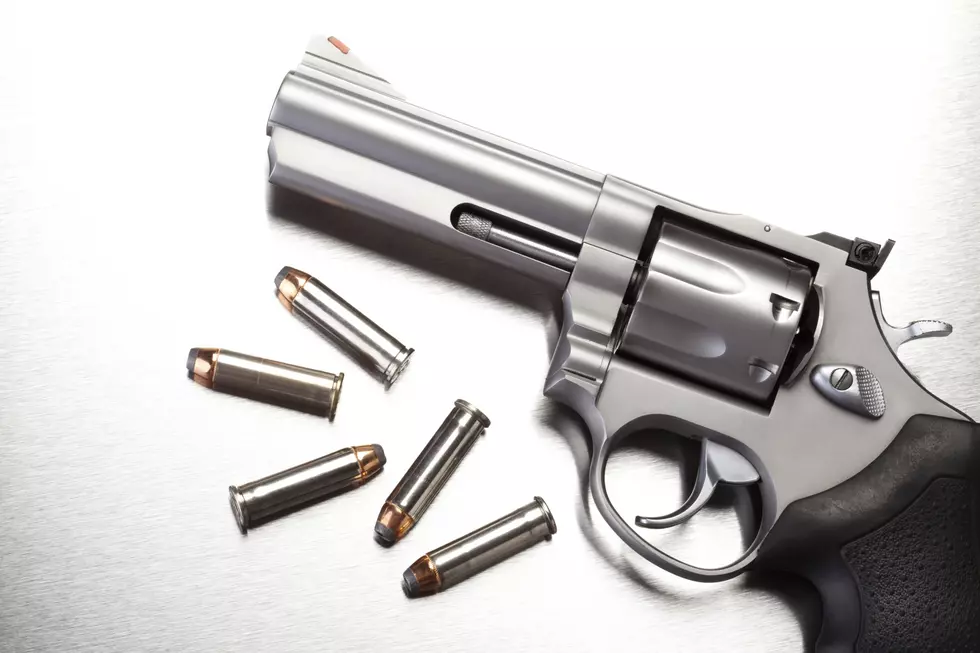
Stand Your Ground: Understanding Self-Defense Laws In New Jersey
⭕ New Jersey has among the strictest gun laws in the nation
⭕ Do you have the right to 'stand your ground' in the face of an attack?
⭕ When can you use deadly force against another person?
Applications for gun permits continue to rise in New Jersey with many seeking to purchase a gun for self-protection.
With many new gun owners in New Jersey, I am often asked about the state’s self-defense laws and the use of deadly force.
While I have written about this topic extensively, many still ask if New Jersey is a so-called “stand your ground” state.
Before I answer that question, let’s take a closer look at what “stand your ground” means and the types of self-defense laws that are generally adopted in the United States.
Please note: This article is not intended as a substitute for legal advice. If you have specific questions about the law and how it may apply to your circumstances, we strongly urge you to consult with an attorney.
Among the experts I consulted for this topic are:
Samuel “Skip” Reale. Skip spent nearly 30 years as a prosecutor, including with the New Jersey Attorney General’s Organized Crime and Racketeering Bureau. Since 2003, Skip has been in private practice, specializing in criminal defense.
Tim Alexander. Tim is a veteran prosecutor and prominent Civil Rights attorney. Alexander is a former detective captain in charge of the Atlantic County Prosecutor’s Criminal Investigation Section. He is also the former major trial prosecutor for the Philadelphia District Attorney's Office.
What is “Stand your Ground?”
While individual state laws vary, the essence of stand your ground is the removal of a duty to retreat permitting the use of deadly force in self-defense.
In the broadest sense, this can involve situations both in your home and in public.
The first state to pass a stand your ground law was Florida in 2005.
Perhaps the most famous stand your ground case came in 2012 when George Zimmerman shot and killed Trayvon Martin.
At the time, Zimmerman was working as a neighborhood watch captain when he approached Martin who he described as acting “suspiciously.”
A confrontation ensued and Zimmerman shot and killed Martin.
He was ultimately found not guilty under Florida’s stand your ground law.
READ MORE: When you use a gun in New Jersey
Are there variations of stand your ground?
There are.
Some states have a variation that apply only to specific locations.
The most common would be inside your home.
This is commonly referred to a “castle doctrine’ or defense of habitation.
However, some states have expanded this law to include other specific places like anywhere on your property, your place of work or even your vehicle.
These statutes generally remove any duty to retreat before the use of deadly force.
What is Duty to Retreat?
A Duty to Retreat statute is the opposite of stand your ground and castle doctrine.
Again, while the law may vary from state to state, the general statute requires you retreat from any threatening situation if you can do so safely. Only when retreat is not an option, may you employ the use of deadly force.
Generally, however, this statute does not apply to the confines of your home.
What is the law in New Jersey?
New Jersey has very specific laws regarding the defense of oneself, defense of others and defense of property.
According to veteran prosecutor Skip Reale, the use of deadly force is not permitted in defense of oneself or another person in all but the most extreme circumstances.
Attorney Tim Alexander agrees, pointing out that deadly force is never permitted in the defense of property.
Even if someone were to break into your house, you are permitted to defend yourself, but not the contents of the home.
If someone is stealing something from you, there is no presumption under New Jersey law that they intend to do you bodily harm.
Does New Jersey have the 'Stand your Ground' law?
No.
New Jersey does not have a stand your ground law, nor does it have castle doctrine.
In fact, Reale and Alexander say in New Jersey it is just the opposite.
You have a duty to retreat unless someone is actually inside your home posing a danger to you or your family.
READ MORE: Mistakes to avoid when applying for a gun permit in NJ
Is that always the case?
Pretty much.
In New Jersey, you have a duty not to use deadly force in all but the most extreme cases.
"If I'm in danger, if I perceive that I or others are in danger of imminent bodily, or serious bodily injury, you can use deadly force," Alexander explained, "However, for most run-of-the-mill occasions — the guy trying to boost the car, a stranger in the yard, anything suspicious — that is not going to include deadly force in most circumstances."
Monmouth County Sherriff Shawn Golden recognizes the sensitive nature of the issue.
“It may be somewhat of a political view but my view is you have a right to protect your home," Golden says, "And if you have a legal firearm and you are feeling threatened within your residential domicile, then you need to take the action that you believe you need to take.”
Summit Police Detective Mike Freeman agrees.
“If they are coming into your home, or in your home, it’s reasonable to assume that they're causing a threat to your person or your family. So, you would, in my opinion, be justified in using deadly force.”
READ MORE: NJ 101.5's Judi Franco gets a gun
Another word of caution
Stafford Township Police Chief Thomas Dellane cautioned that these instances are not always black and white.
“Even if the law allows for it, you're going to be subject to an investigation. You're subject to potential criminal charges. You're subject to potential civil charges (a lawsuit). If I can make one strong point this evening, call 911 as soon as possible and let the professionals deal with it the way we're trained to do.”
What states do have a stand your ground law?
The following states have some version of a stand your ground law, but each state also has very specific rules as to when it applies.
The most common provision is that the person using deadly force must not be the initial aggressor in any altercation.
⭕ Alabama
⭕ Alaska
⭕ Arizona
⭕ Arkansas
⭕ Florida
⭕ Georgia
⭕ Idaho
⭕ Indiana
⭕ Iowa
⭕ Kansas
⭕ Kentucky
⭕ Louisiana
⭕ Michigan
⭕ Mississippi
⭕ Missouri
⭕ Montana
⭕ Nevada
⭕ New Hampshire
⭕ North Carolina
⭕ Ohio
⭕ Oklahoma
⭕ Pennsylvania
⭕ South Carolina
⭕ South Dakota
⭕ Tennessee
⭕ Texas
⭕ Utah
⭕ West Virginia
⭕ Wyoming
What state’s have Duty to Retreat laws?
While these states, including New Jersey, require you to retreat if you can safely do so, you do not have a duty to retreat from an intruder in your home.
⭕ Connecticut
⭕ Delaware
⭕ Hawaii
⭕ Massachusetts
⭕ Maryland
⭕ Maine
⭕ Minnesota
⭕ Nebraska
⭕ New Jersey
⭕ New York
⭕ North Dakota
⭕ Rhode Island
⭕ Wisconsin
WATCH: New Jersey 101.5 Town Hall on the state's gun laws
Places in NJ where gun owners have sued to carry a legal gun
Gallery Credit: Erin Vogt & The Associated Press
32 States With Laws to Take Guns From Certain People
Gallery Credit: Canva
How Many in America: From Guns to Ghost Towns
Gallery Credit: RACHEL CAVANAUGH
Report a correction 👈 | 👉 Contact our newsroom
More From New Jersey 101.5 FM









